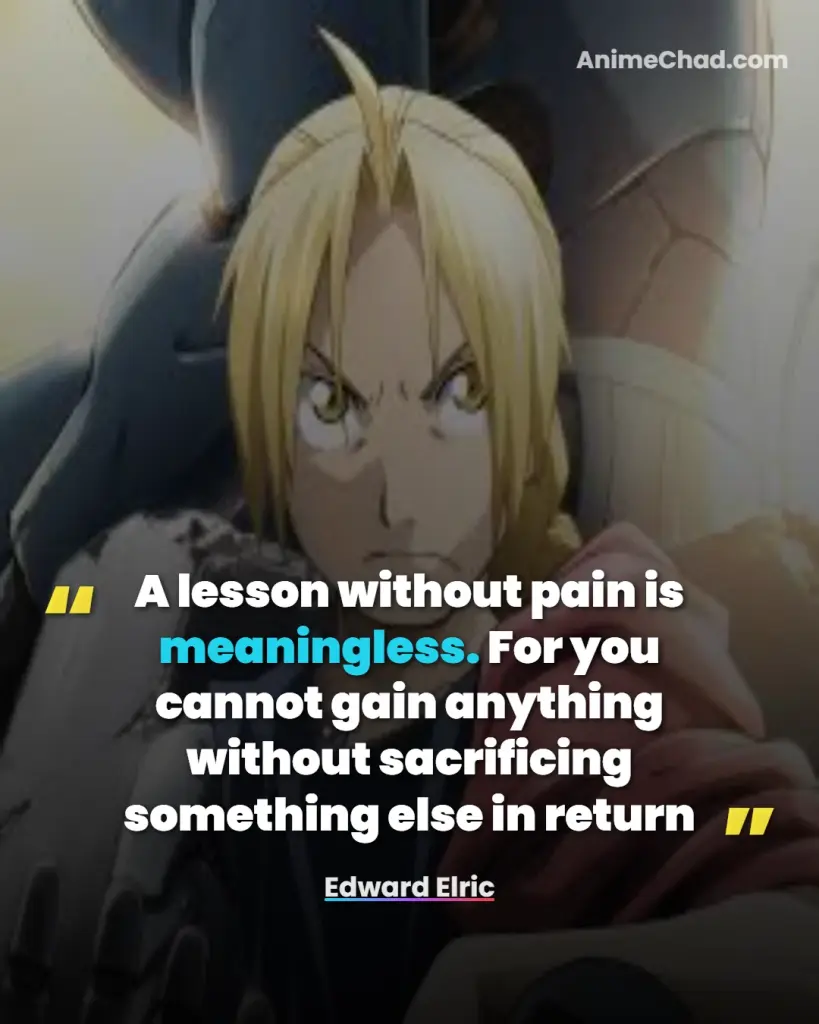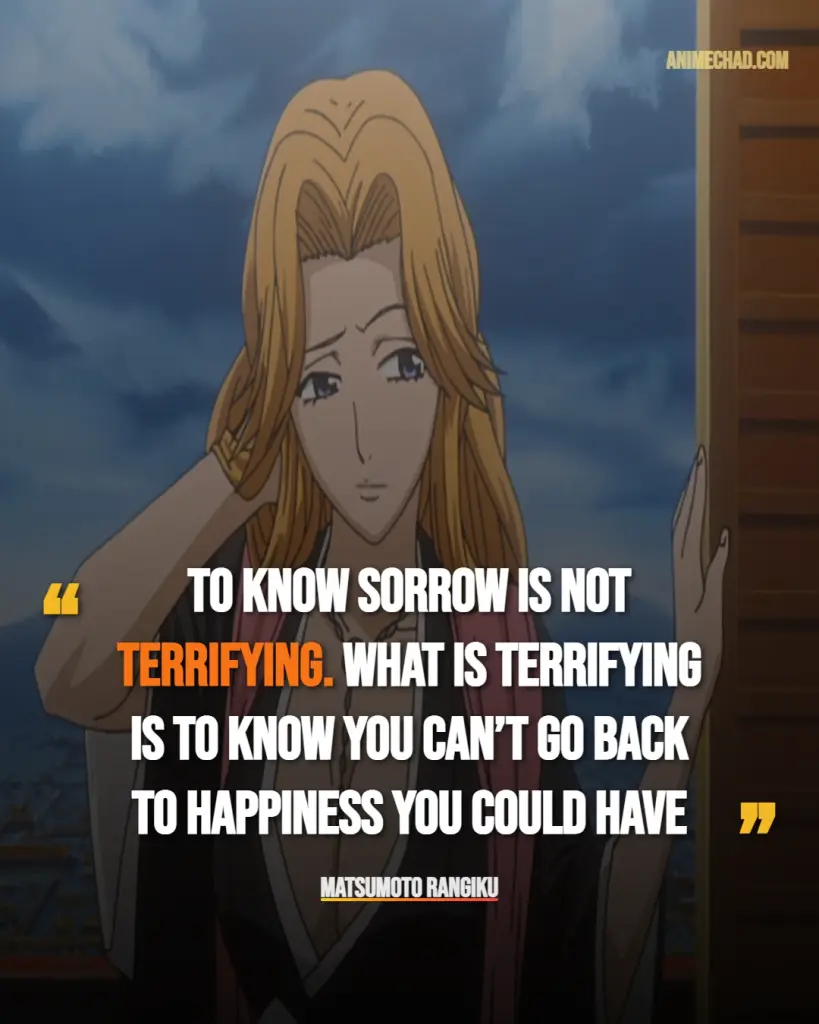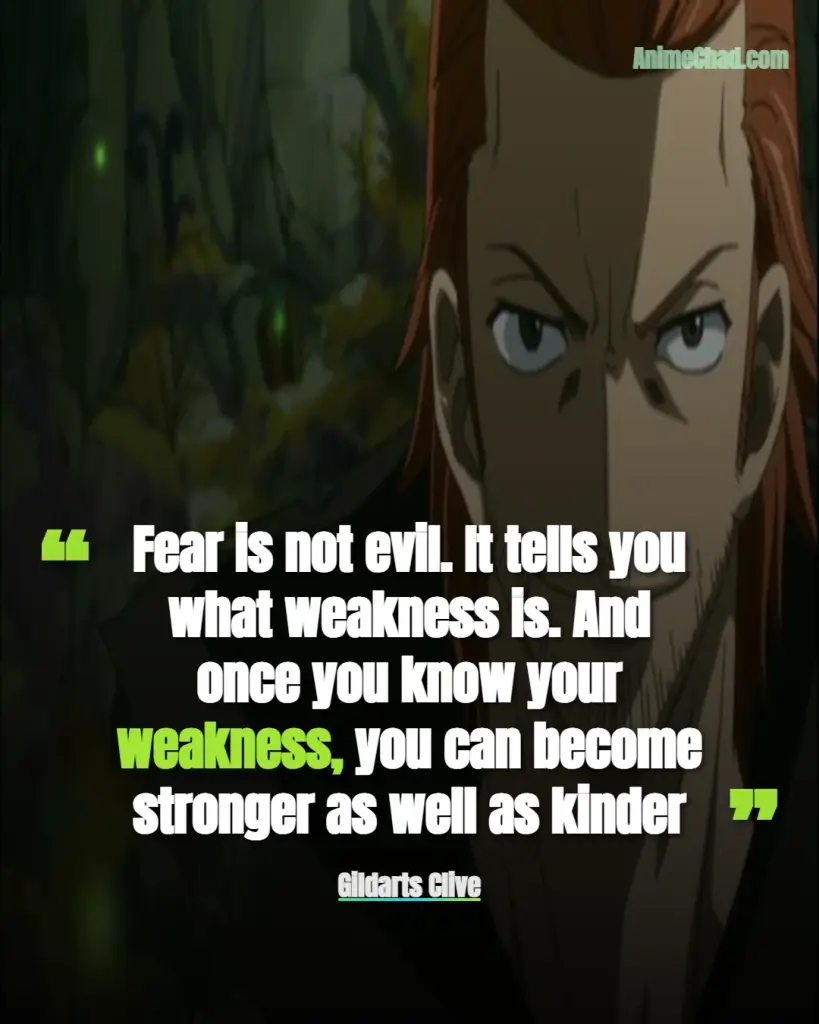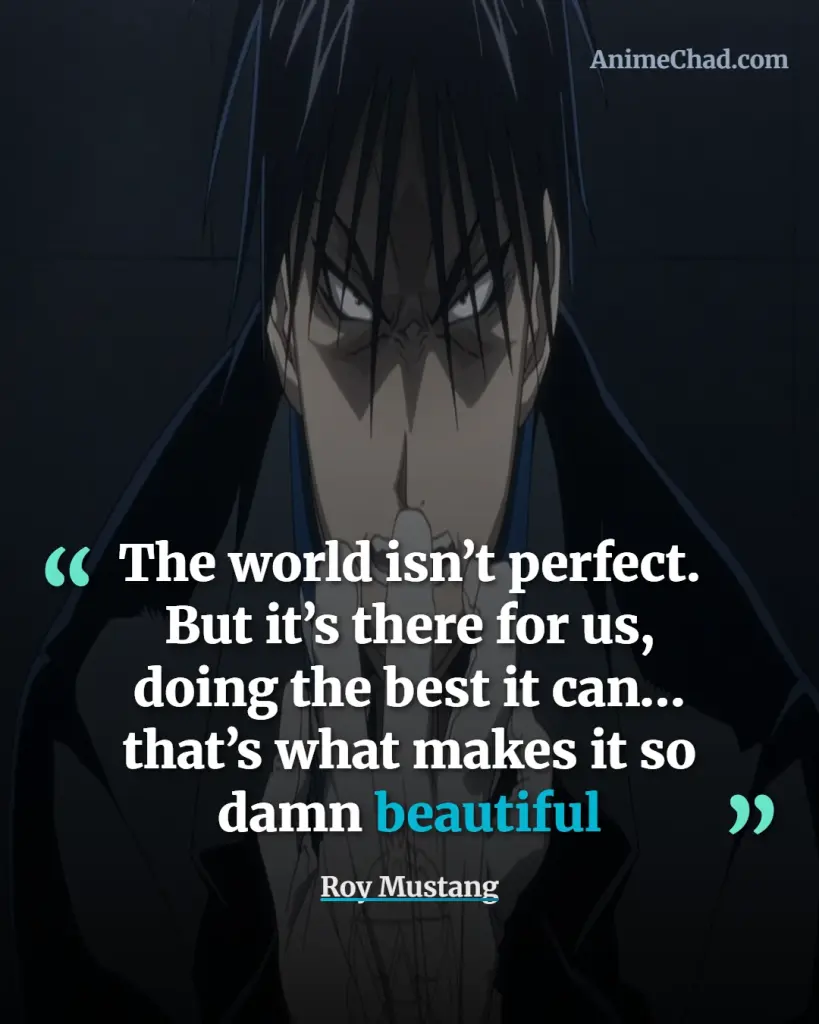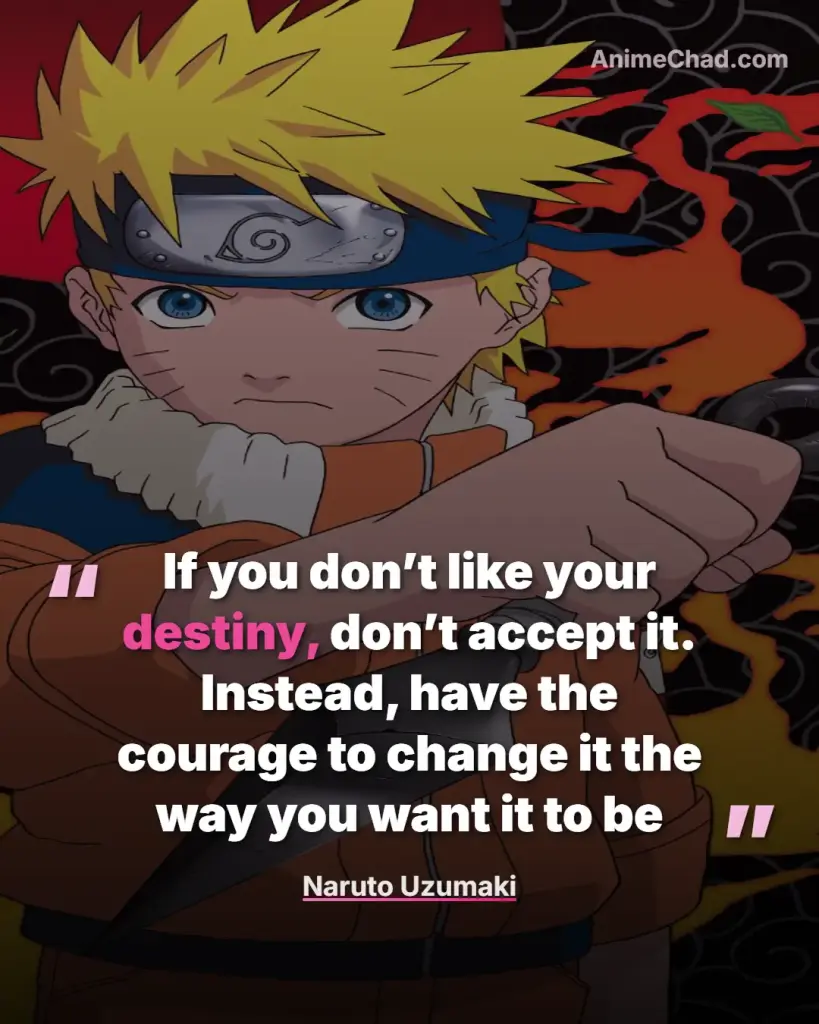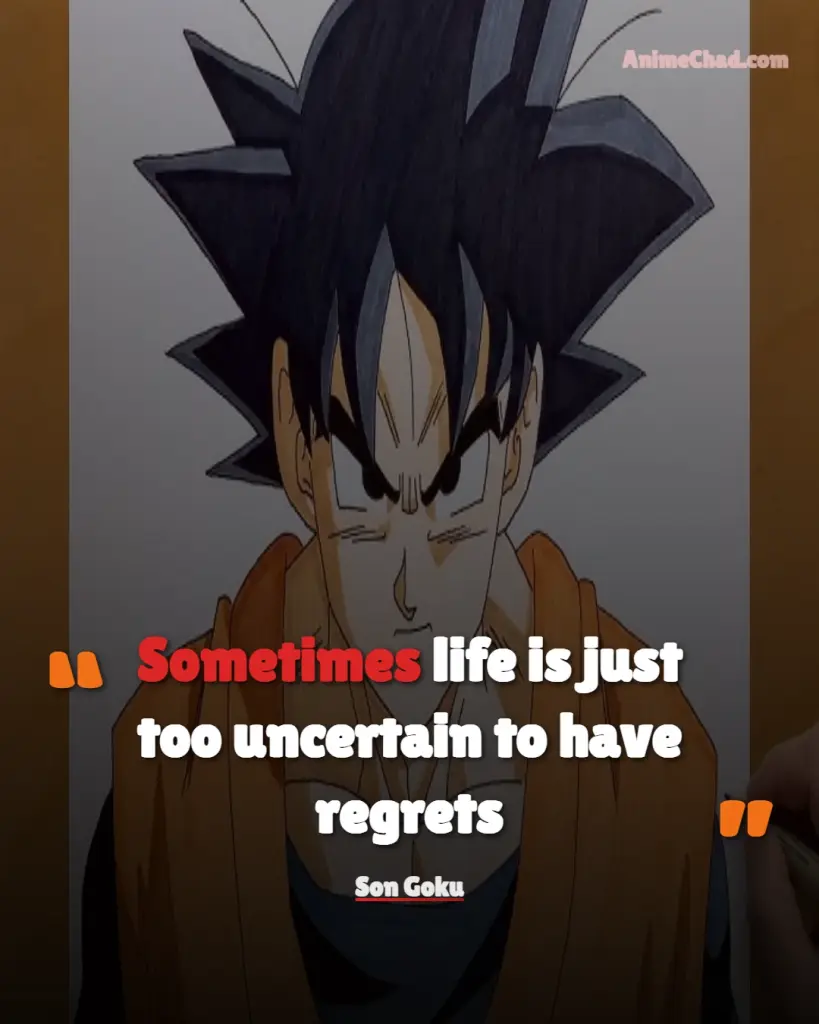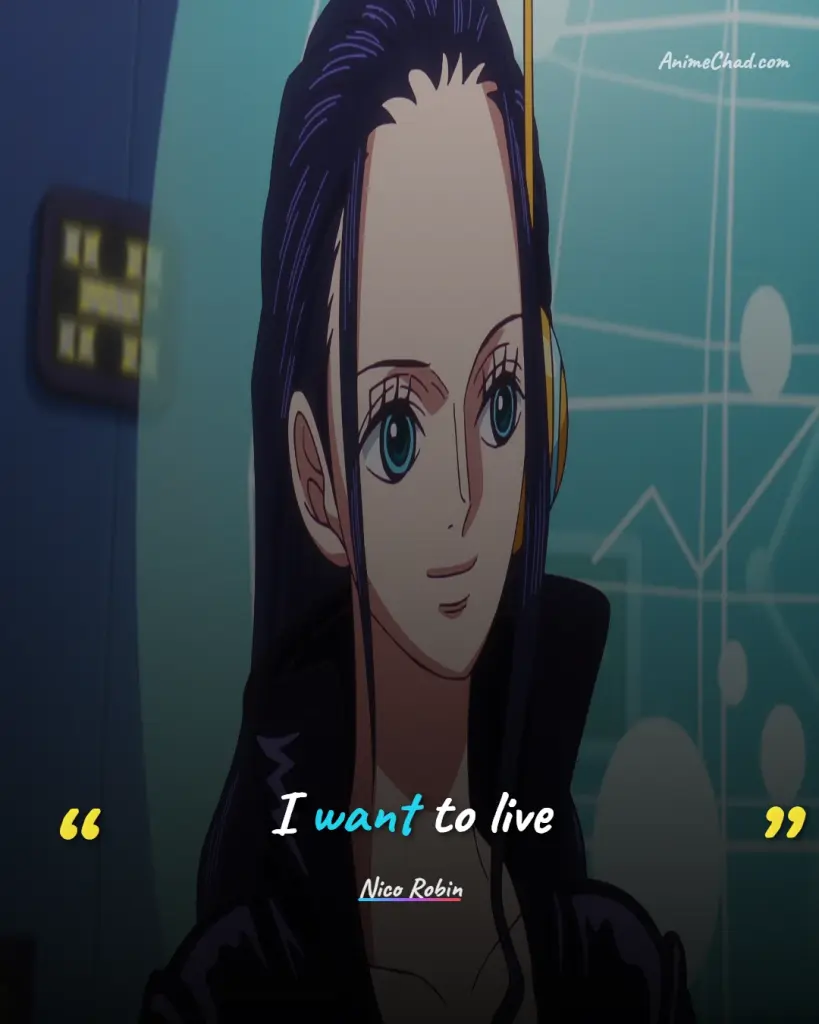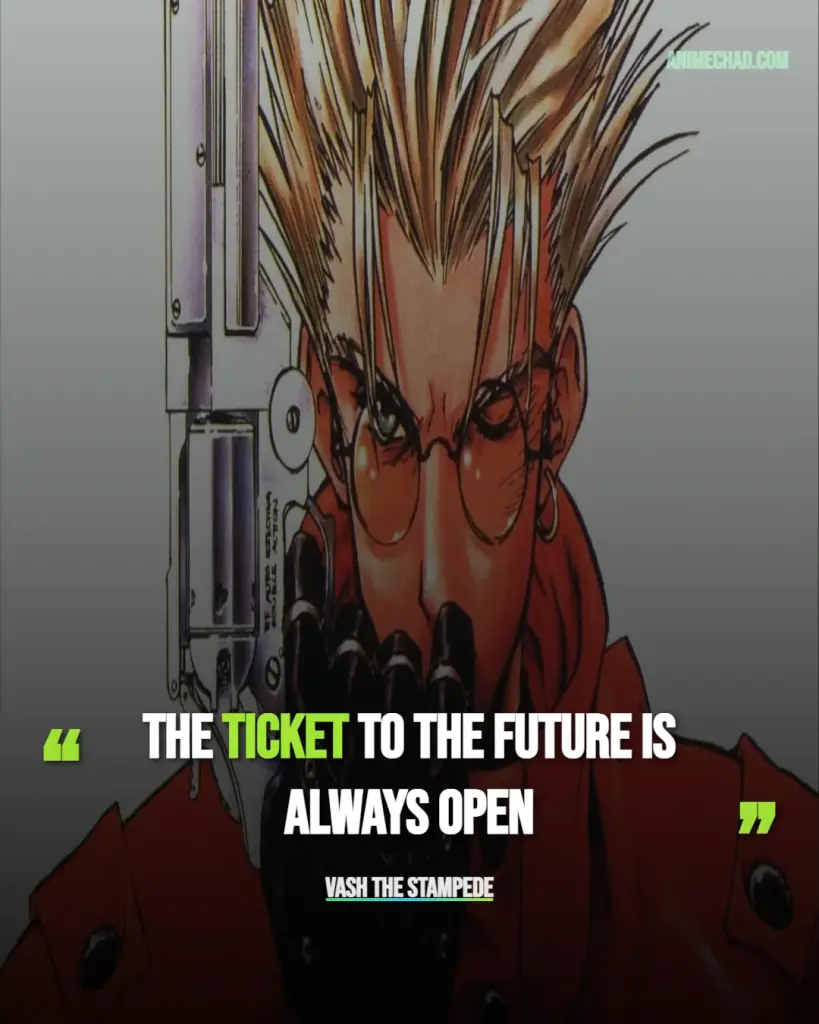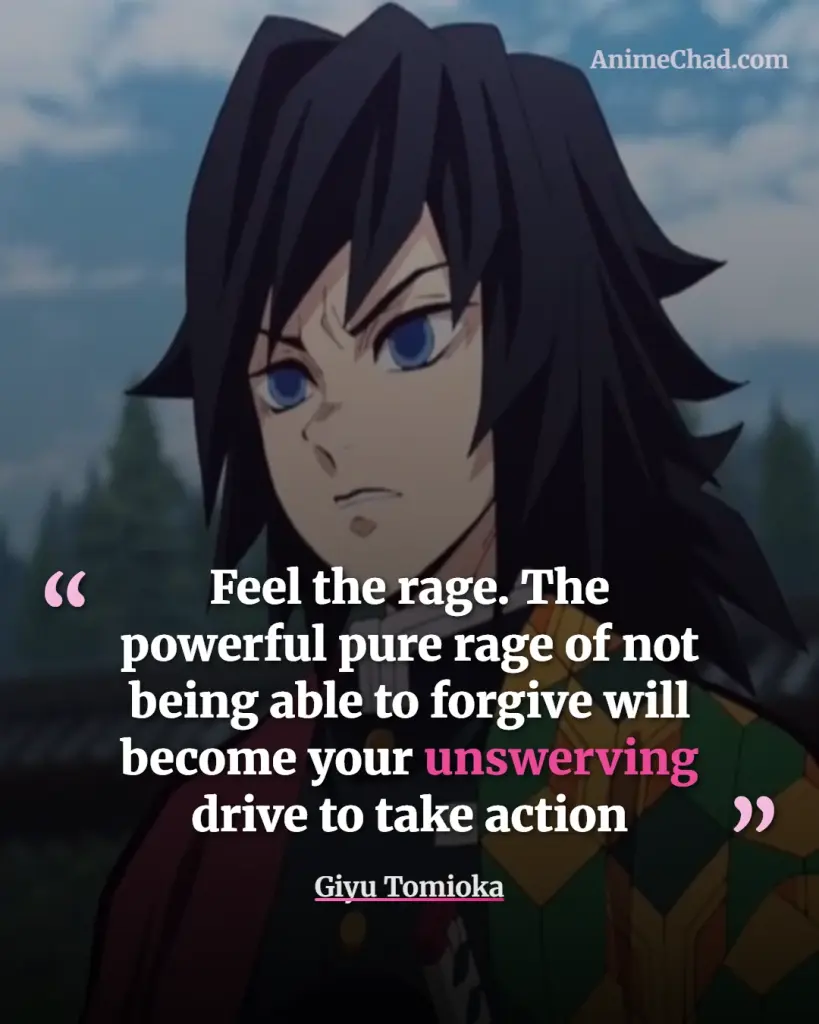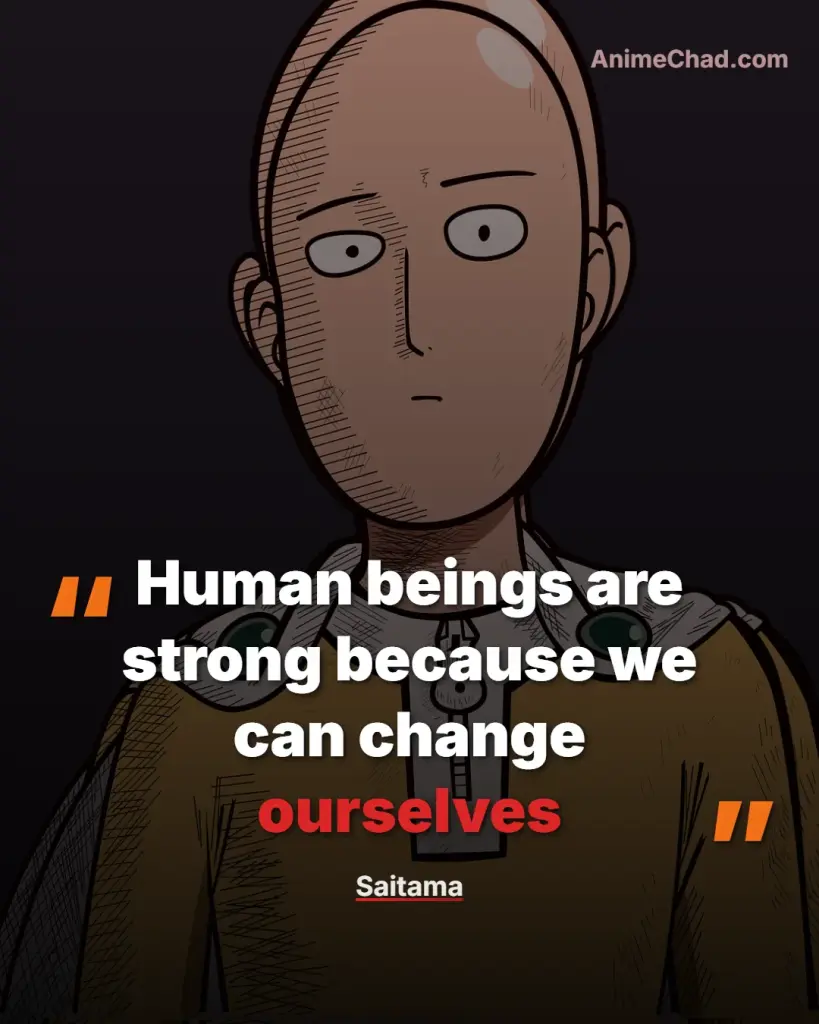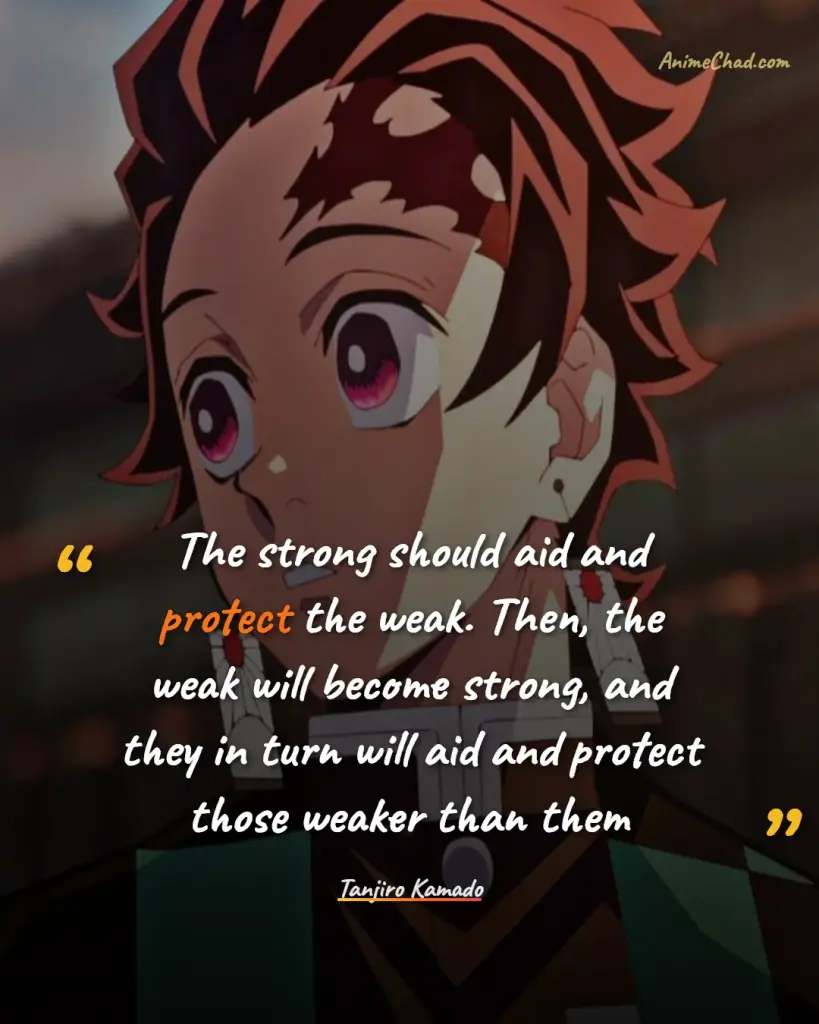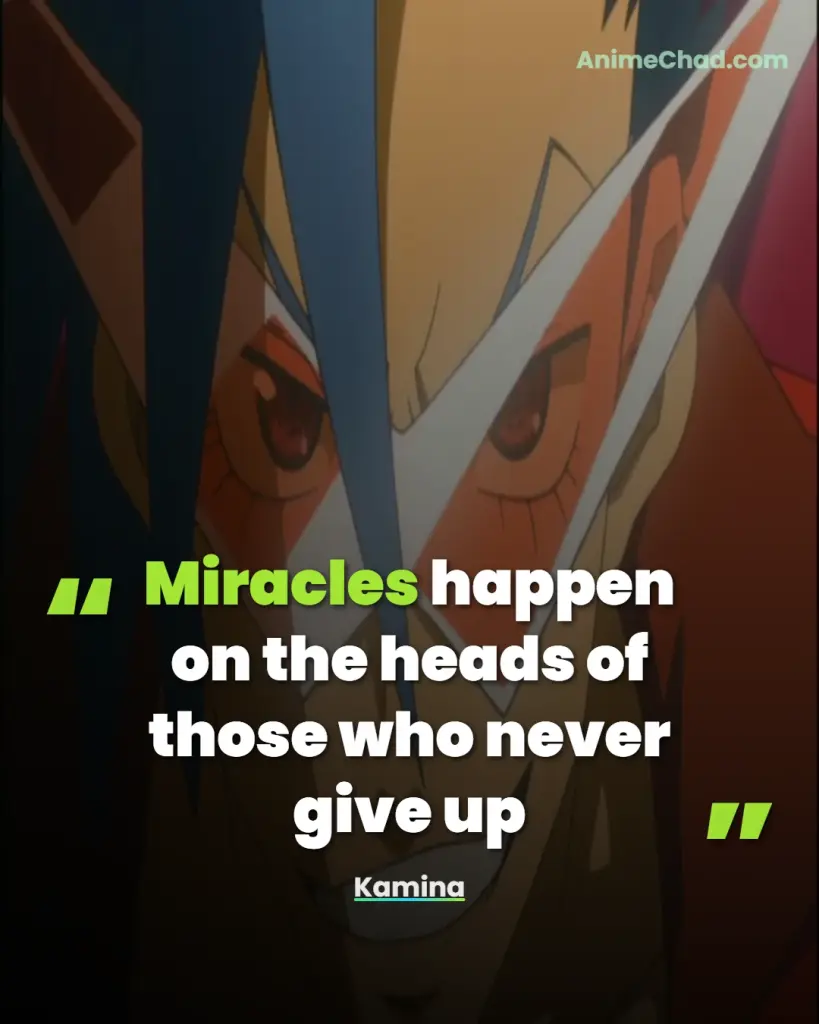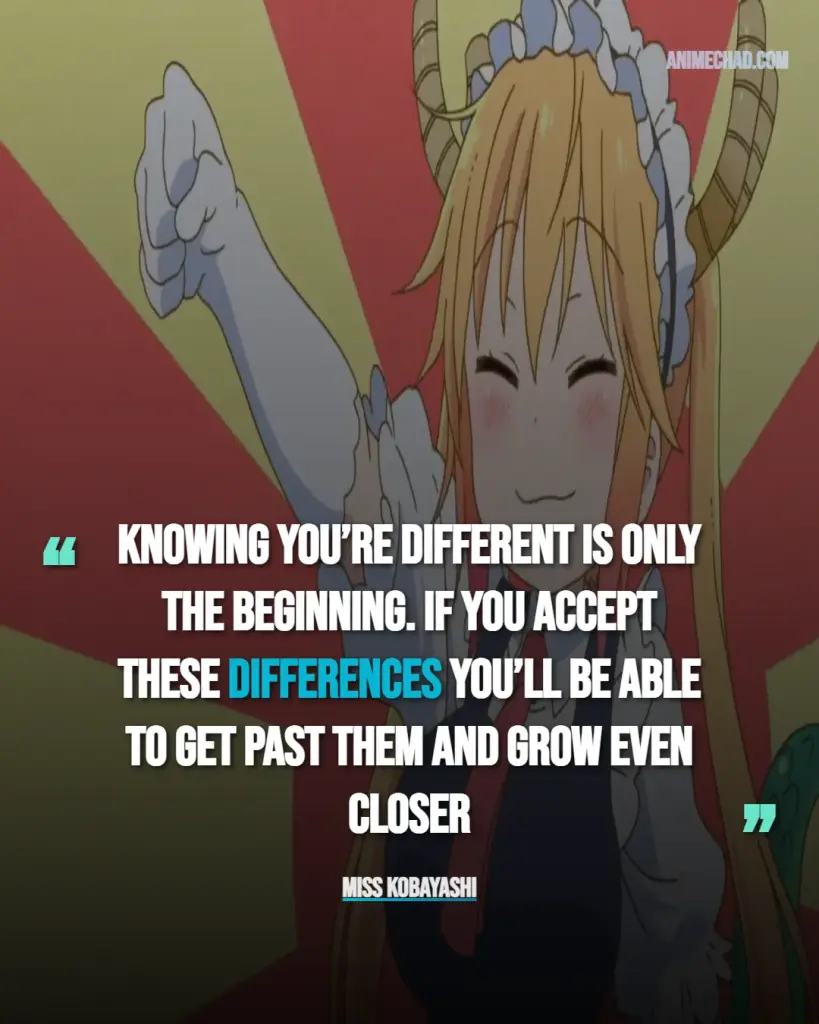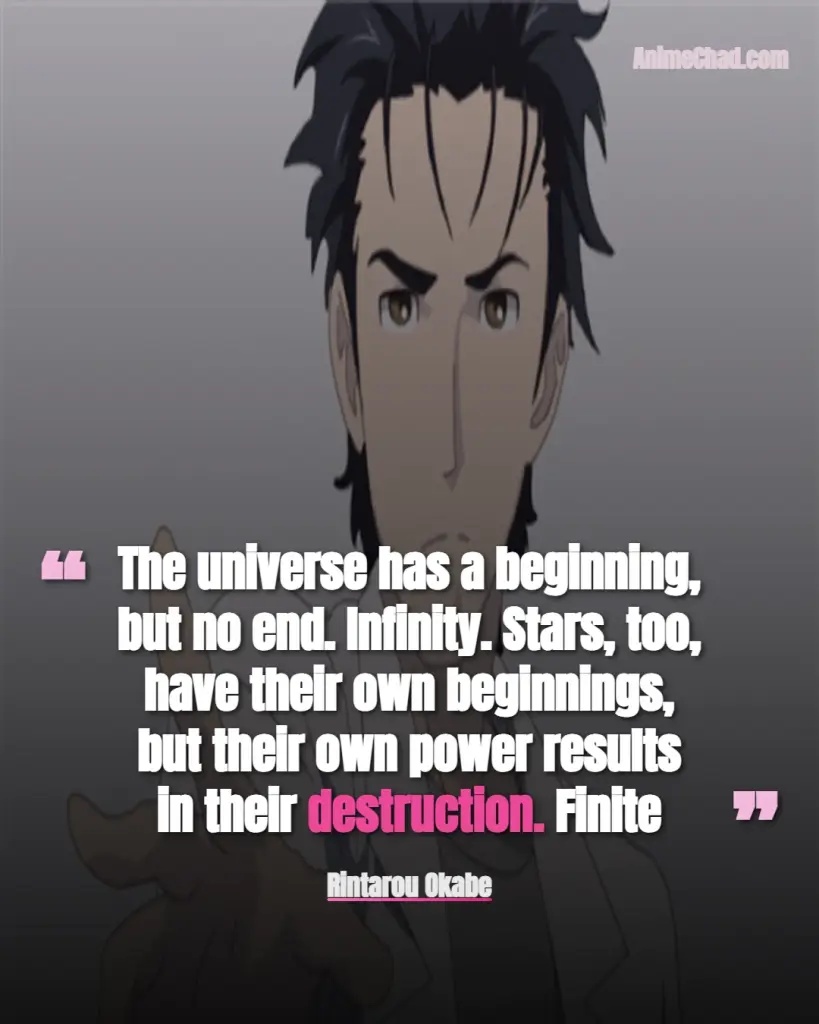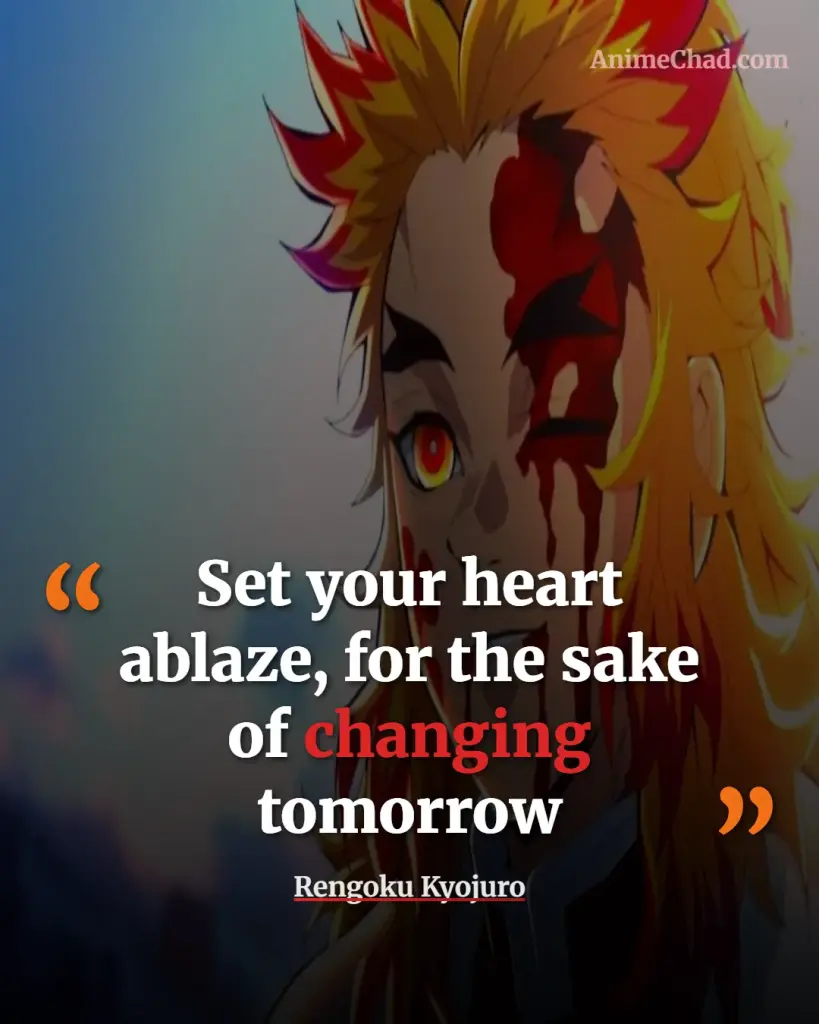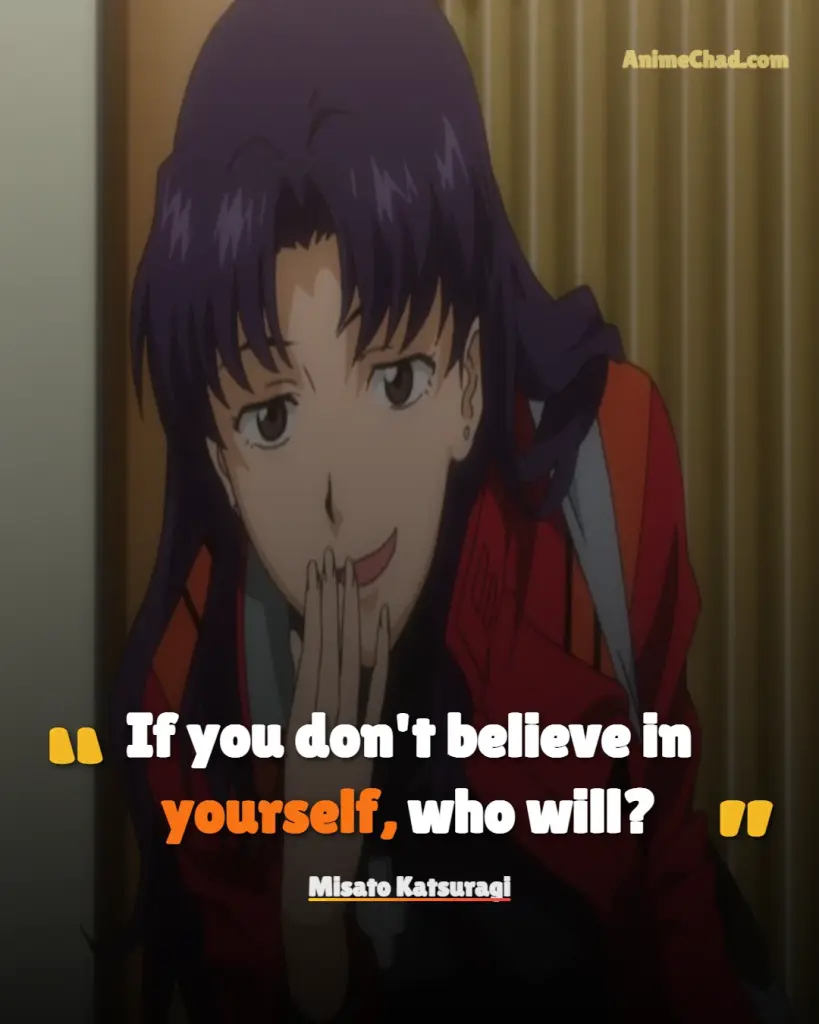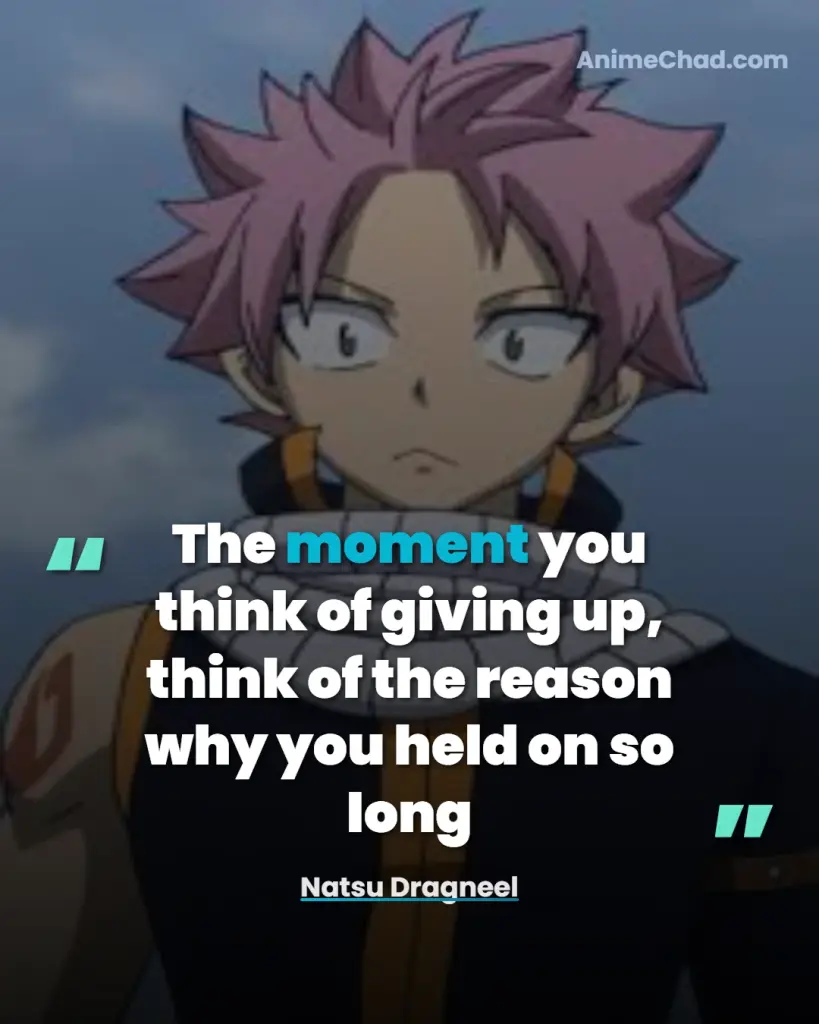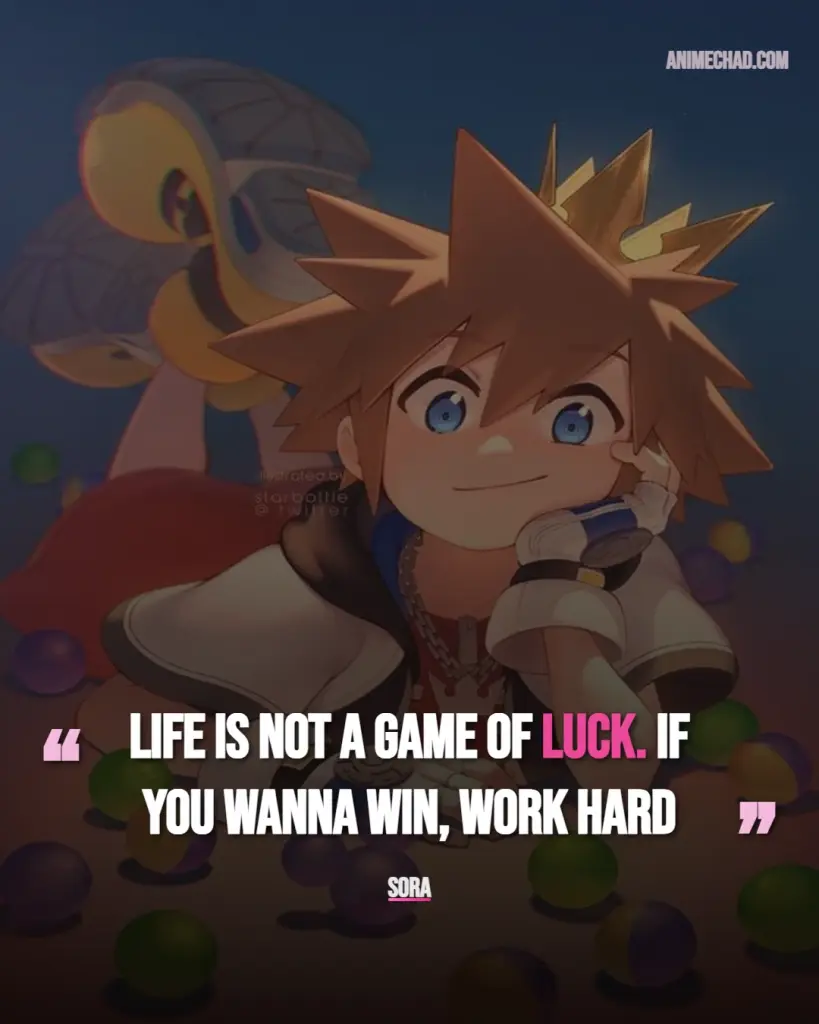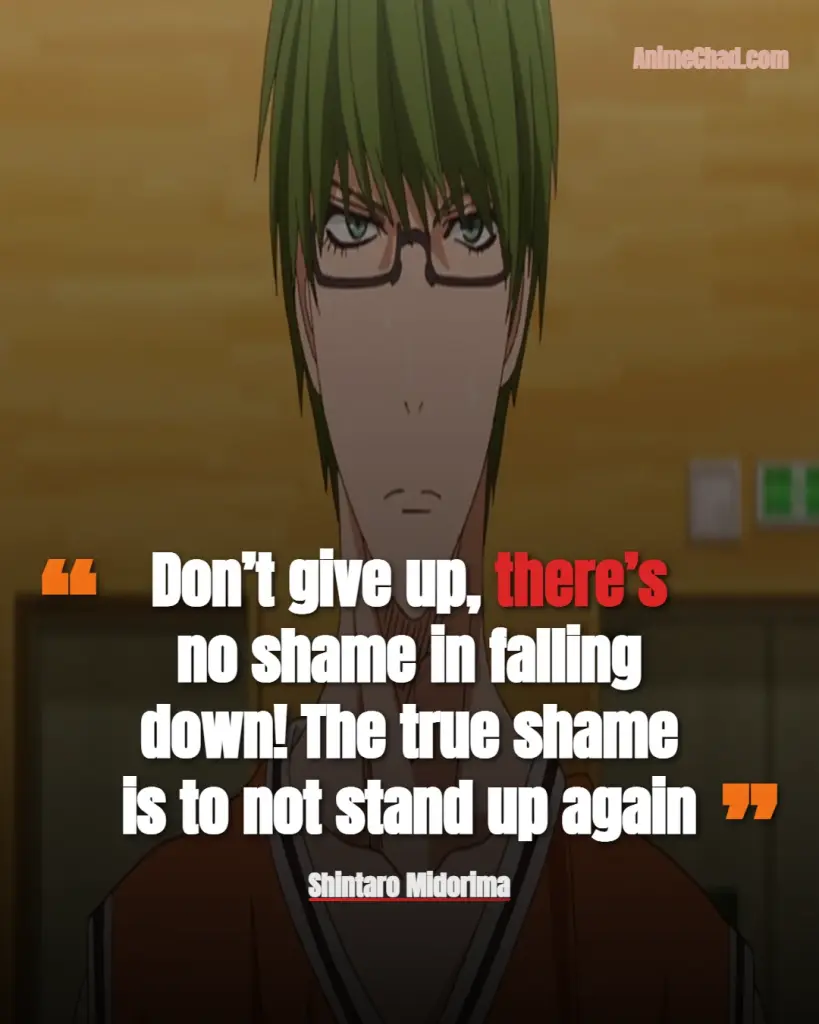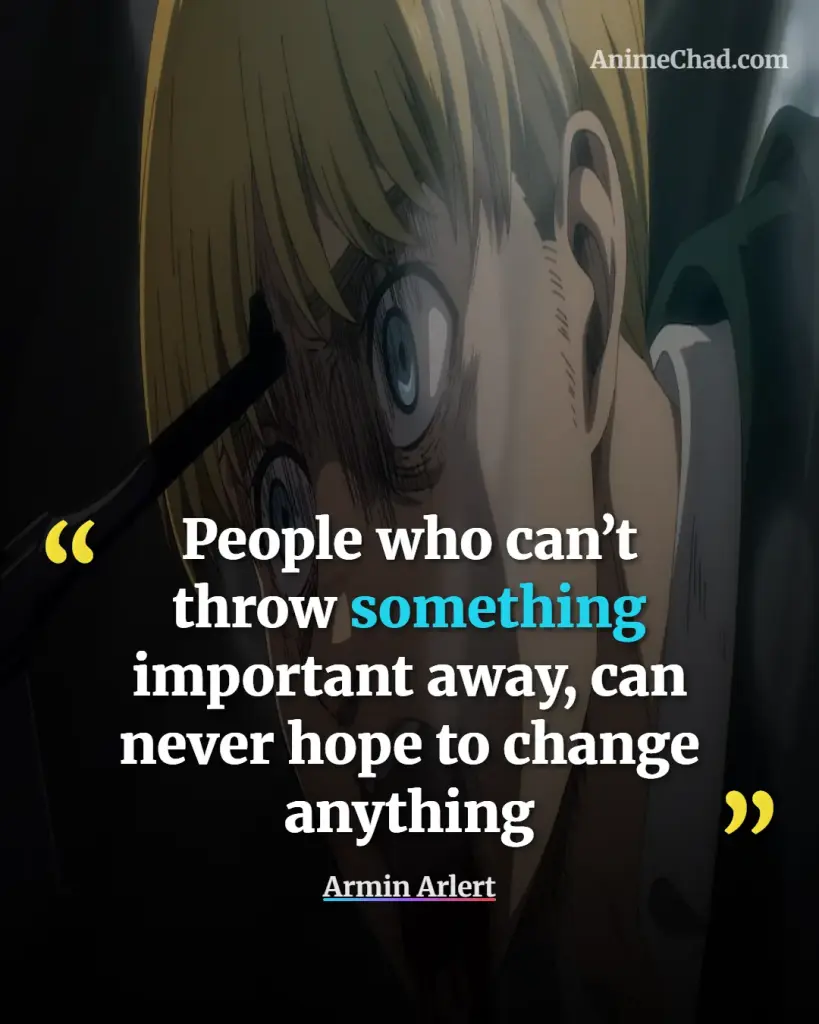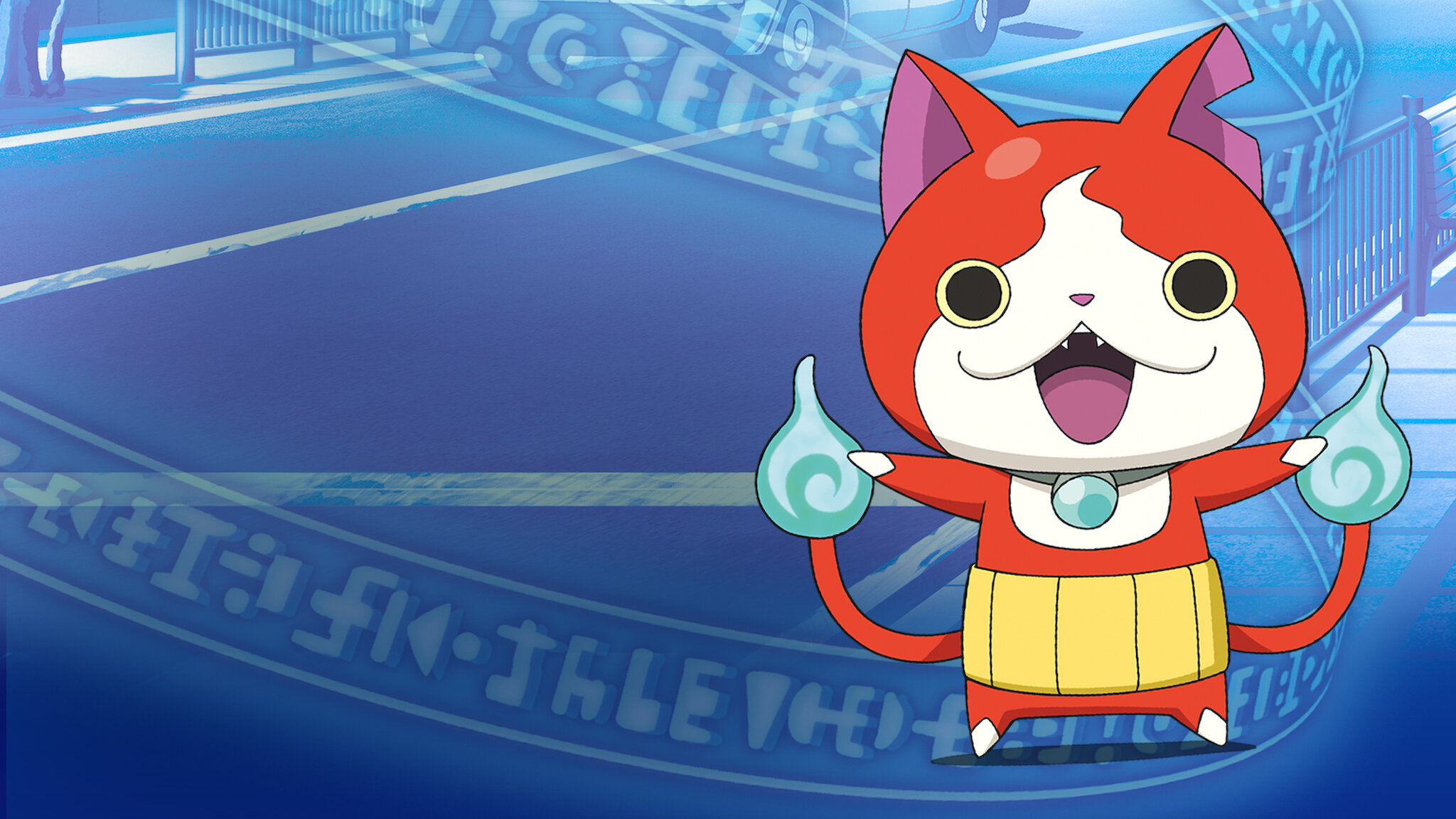Anime often weaves profound spiritual themes into its narratives, exploring the human soul’s journey through adversity, self-discovery, and inner resilience across series like Naruto, Fullmetal Alchemist, and Demon Slayer. These stories delve into perseverance, the value of life, and transcending personal limits, offering timeless wisdom.
This curated collection of 25 quotes highlights spiritual insights to inspire reflection on growth, empathy, and the essence of existence.
A lesson without pain is meaningless. For you cannot gain anything without sacrificing something else in return
Episode Details: Episode 64 (Journey’s End)
Speaker: Edward Elric
Context: Edward’s epiphany on enduring hardship fosters profound character growth, emphasizing spiritual resilience in Fullmetal Alchemist’s theme of equivalent exchange.
To know sorrow is not terrifying. What is terrifying is to know you can’t go back to happiness you could have
Episode Details: Episode 25 (Closing Door)
Speaker: Matsumoto Rangiku
Context: Reflects deep emotional weight of loss, highlighting spiritual maturity and acceptance in Bleach’s exploration of regret and human bonds.
Fear is not evil. It tells you what weakness is. And once you know your weakness, you can become stronger as well as kinder
Episode Details: Episode 73 (Tears of the Moon)
Speaker: Gildarts Clive
Context: In a peaceful moment of guidance, this fosters character development through vulnerability, tying into Fairy Tail’s themes of inner strength and compassion.
The world isn’t perfect. But it’s there for us, doing the best it can… that’s what makes it so damn beautiful
Episode Details: Episode 26 (Reunion)
Speaker: Roy Mustang
Context: Amid battle aftermath, Mustang’s reflection on imperfection inspires spiritual gratitude, advancing his arc in Fullmetal Alchemist’s philosophy of life’s value.
If you don’t like your destiny, don’t accept it. Instead, have the courage to change it the way you want it to be
Episode Details: Episode 141 (The First and Last)
Speaker: Naruto Uzumaki
Context: Naruto’s defiant stand in battle marks his growth from outcast to leader, embodying Naruto’s spiritual theme of self-determination.
Sometimes life is just too uncertain to have regrets
Episode Details: Episode 190 (The Last Battle)
Speaker: Son Goku
Context: Goku’s peaceful encouragement to Gohan during crisis highlights emotional release, connecting to Dragon Ball Z’s arc of embracing the present.
I want to live
Episode Details: Episode 278 (Say You Want to Live!)
Speaker: Nico Robin
Context: Robin’s tearful declaration in a desperate moment signifies breakthrough self-worth, central to One Piece’s spiritual motif of chosen existence.
Push through the pain. Giving up hurts more
Episode Details: Episode 291 (The Ultimate Power-Up)
Speaker: Vegeta
Context: Vegeta’s battle cry reveals vulnerability and growth, underscoring Dragon Ball Z’s theme of spiritual endurance over surrender.
The ticket to the future is always open
Episode Details: Episode 23 (The Gate of Life)
Speaker: Vash the Stampede
Context: In a reflective, non-battle scene, Vash inspires hope amid despair, advancing Trigun’s exploration of redemption and infinite potential.
No matter how hard or impossible it is, never lose sight of your goal
Episode Details: Episode 400 (Departure)
Speaker: Monkey D. Luffy
Context: Luffy’s motivational words during a crew’s peaceful resolve highlight perseverance, tying into One Piece’s spiritual journey of dreams.
Feel the rage. The powerful pure rage of not being able to forgive will become your unswerving drive to take action
Episode Details: Episode 1 (Flame of Fate)
Speaker: Giyu Tomioka
Context: Giyu’s intense guidance channels Tanjiro’s grief into purpose, marking early development in Demon Slayer’s theme of transformative anger.
Human beings are strong because we can change ourselves
Episode Details: Episode 12 (The One Who is More)
Speaker: Saitama
Context: In a moment of quiet introspection, Saitama reflects on adaptability, emphasizing One Punch Man’s spiritual growth through self-evolution.
Even when our eyes are closed, there’s a whole world out there that lives outside ourselves and our dreams
Episode Details: Episode 48 (Goodbye)
Speaker: Edward Elric
Context: Edward’s realization during recovery fosters humility, connecting to Fullmetal Alchemist’s broader theme of interconnected existence.
The strong should aid and protect the weak. Then, the weak will become strong, and they in turn will aid and protect those weaker than them
Episode Details: Episode 34 (A Sound Argument)
Speaker: Tanjiro Kamado
Context: Tanjiro’s compassionate plea in battle promotes cyclical growth, highlighting Demon Slayer’s spiritual cycle of empathy and strength.
Miracles happen on the heads of those who never give up
Episode Details: Episode 7 (The Spiral King)
Speaker: Kamina
Context: Kamina’s rallying cry amid fierce combat inspires unyielding spirit, central to Gurren Lagann’s theme of defiant spiritual evolution.
Knowing you’re different is only the beginning. If you accept these differences you’ll be able to get past them and grow even closer
Episode Details: Episode 13 (Miss Kobayashi’s Dragon Maid)
Speaker: Miss Kobayashi
Context: In a peaceful domestic scene, this fosters acceptance, advancing character bonds in Miss Kobayashi’s Dragon Maid’s exploration of unity.
The universe has a beginning, but no end. Infinity. Stars, too, have their own beginnings, but their own power results in their destruction. Finite
Episode Details: Episode 1 (Okabe)
Speaker: Rintarou Okabe
Context: Okabe’s philosophical musing in a calm moment contemplates existence, tying into Steins;Gate’s spiritual themes of time and finitude.
Set your heart ablaze, for the sake of changing tomorrow
Episode Details: Episode 17 (Mugen Train)
Speaker: Rengoku Kyojuro
Context: Rengoku’s dying words in battle ignite passion, marking Tanjiro’s growth in Demon Slayer’s arc of purposeful living.
Stand up and walk. Keep moving forward. You’ve got two good legs. So get up and use them. You’re strong enough to make your own path
Episode Details: Episode 63 (The Other Side of the Gate)
Speaker: Edward Elric
Context: Edward’s encouragement post-battle emphasizes autonomy, culminating his development in Fullmetal Alchemist’s theme of forward momentum.
If you don’t believe in yourself, who will?
Episode Details: Episode 14 (End of Evangelion)
Speaker: Misato Katsuragi
Context: Misato’s introspective push aids Shinji’s self-doubt crisis, highlighting Neon Genesis Evangelion’s spiritual quest for self-belief.
Whatever you lose, you’ll find it again. But what you throw away you’ll never get back
Episode Details: Episode 25 (Words of Farewell)
Speaker: Kenshin Himura
Context: Kenshin’s reflective advice in a serene moment warns of irreversible choices, connecting to Rurouni Kenshin’s redemption themes.
The moment you think of giving up, think of the reason why you held on so long
Episode Details: Episode 118 (A New Journey)
Speaker: Natsu Dragneel
Context: Natsu’s motivational words during recovery inspire endurance, advancing Fairy Tail’s spiritual motif of unwavering resolve.
Life is not a game of luck. If you wanna win, work hard
Episode Details: Episode 4 (The Game)
Speaker: Sora
Context: In a high-stakes challenge, Sora emphasizes effort over fate, tying into No Game No Life’s theme of proactive spiritual growth.
Don’t give up, there’s no shame in falling down! The true shame is to not stand up again
Episode Details: Episode 25 (The Fake vs. The Real)
Speaker: Shintaro Midorima
Context: Midorima’s encouragement in a tense match highlights resilience, fostering development in Kuroko’s Basketball’s arc of perseverance.
People who can’t throw something important away, can never hope to change anything
Episode Details: Episode 23 (The Promised Land)
Speaker: Armin Arlert
Context: Armin’s battle realization demands sacrifice for transformation, central to Attack on Titan’s spiritual evolution through loss.

